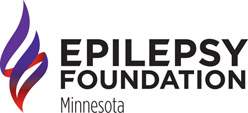Can a person with epilepsy obtain a driver's license in Minnesota?
What is the legal procedure for a driver to report a seizure to the Department of Public Safety ?
What is the cancellation period following a seizure?
Are exceptions allowed to the three month cancellation period?
Can the license be cancelled for longer than three months?
If an individual experiences "nocturnal" seizures, must they also be reported?
Who reports a seizure? Is it the doctor's responsibility to report an individual's seizure to the Department of Public Safety?
What might happen if an individual with seizures had a serious accident after reporting (or not reporting) an episode?
Can an individual appeal the cancellation of driving privileges if they feel they still should be allowed to drive?  Can a person with epilepsy obtain a driver's license in Minnesota?
Can a person with epilepsy obtain a driver's license in Minnesota?
Yes. Thousands of Minnesotans with epilepsy drive safely and accident-free. However, when obtaining a license, state law requires that you report any condition which can even occasionally cause loss of consciousness or voluntary control is defined as the inability to assume and retain upright posture without support, or inability to respond rationally to external stimuli.
 What is the legal procedure for a driver to report a seizure to the Department of Public Safety?
What is the legal procedure for a driver to report a seizure to the Department of Public Safety?
A driver is required to report a seizure, and the date it occurred, to the Department within thirty (30) days of the episode. Failure to report as required or misrepresentation by the driver could result in a loss of driving privileges for six (6) months following discovery.
Here is a link to the State of Minnesota’s seizure reporting form
 What is the cancellation period following a seizure?
What is the cancellation period following a seizure?
A driver needs to remain seizure-free for three (3) months following a seizure before reinstatement of the driver's license. It is required to submit a physician's statement to DVS after the three (3) months.
 Are exceptions allowed to the three month cancellation period?
Are exceptions allowed to the three month cancellation period?
Yes. An exception is allowed once in every four years if the driver has a seizure related to temporary illness or an isolated incident of negligence in taking medication, provided the physician indicated a favorable short and long-term prognosis. A second seizure within four years requires an appeal to the Department's Medical Review Board for variance from the rule.
Yes. An exception is allowed if the seizure occurs under a physician's orders to change or withdraw medication (and the physician does not recommend cancellation of driving privileges) an exception is allowed. Physician documentation required at six (6) months and 1 year.
Yes. An exception is allowed if the physician states that the episode was the first one experienced by the driver and the physician does not recommend cancellation of driving privileges.
 Can the license be canceled for longer than three months?
Can the license be canceled for longer than three months?
Yes. If the seizure is caused by alcohol or controlled substance abuse, the loss of driving privileges following the episode is for one year instead of three months. Failure to report a seizure can extend the cancellation longer than three months.
 If an individual experiences "nocturnal" seizures, must they also be reported?
If an individual experiences "nocturnal" seizures, must they also be reported?
Yes. The nature of an individual's epilepsy can change. A person who has never had a seizure while awake can suddenly start having them. Also, if an individual with nocturnal epilepsy were to fall asleep at the wheel or become very drowsy, a seizure could occur.
 Who reports a seizure? Is it the doctor's responsibility to report an individual's seizure to the Department of Public Safety?
Who reports a seizure? Is it the doctor's responsibility to report an individual's seizure to the Department of Public Safety?
No. It is not the responsibility of the doctor to report a patient's seizure, although the doctor may choose to do so if he or she feels the patient may not do it or may still be driving. It is the legal responsibility of the individual who experienced the seizure to report the seizure and failure to report as required could result in a loss of driving privileges for six months following the discovery.
 What might happen if an individual with seizures had a serious accident after reporting (or not reporting) an episode?
What might happen if an individual with seizures had a serious accident after reporting (or not reporting) an episode?
Some individuals have been prosecuted for failure to comply with driver's licensing rules and regulation, In the case of an accident which resulted in death, an individual could face charges of vehicular homicide.
 Can an individual appeal the cancellation of driving privileges if they feel they still should be allowed to drive?
Can an individual appeal the cancellation of driving privileges if they feel they still should be allowed to drive?
Yes. A driver has the right to appeal the loss of driving privileges. The appeals process consists of writing a letter to the Department of Public safety. Motor Vehicles Division. They send a letter to the individual (driver) who in turn sends it to his or her physician requesting more medical information such as the medication the individual uses, type and severity of seizures the individual experiences, etc. That information is forwarded to the Medical Review Board, The vote of the physicians on the board is by phone to the chairman of the panel and is handled in an expeditious manner. However, the physicians do not say; the Department of Public Safety does, and it takes several weeks for a decision to be rendered.
